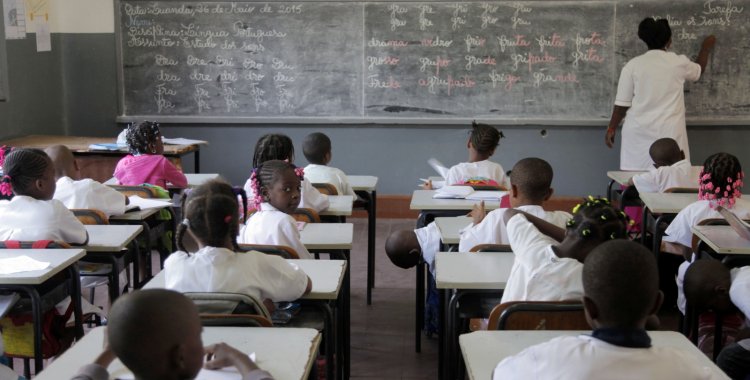Professor at the Instituto Superior de Ciências da Educação and at the Instituto Politécnico Superior Lusíada, in Cabinda, Raul Tati spoke at the conference on Education Law and Policy, which marks the 30th anniversary of ELA – European Association for Education Law and Policy, organized by this association and the Faculty of Law of Lisbon.
"From the point of view of the Angolan executive's public policies, investment and operating expenses in education are the lowest in the Southern sub-region (SADC) at just 6 percent, while Mozambique has already reached the 20 percent threshold, Zambia 16.2 percent, Malawi 10.6 percent, Zambia 16.2 percent, Mauritius 15.7 percent, Botswana 24.4 percent, Namibia 20.7 percent, South Africa with 19.5 percent, Zimbabwe with 21.5 percent and Lesotho with 31.3 percent".
"These indicators also translate into practice the weaknesses of our educational system, starting with the poor quality of public-state education, aggravated by the phenomenon of very deep-rooted corruption, whether in the sale of access places or in the sale of grades in the evaluation process" , he considered.
For Raul Tati, after the Angolan civil war ended, "in a post-conflict context, it was expected that expenditure on education would have a significant increase".
This did not happen, despite the increase in revenue resulting from hydrocarbon exports, of which Angola is one of the main producers in Africa.
"Unfortunately, the exponential expenses of defense and security bodies still prevail today, which is justified because Angola continues to be a securocratic state. Several professional and civic associations of civil society, as well as the political opposition in Angola, are still fighting so that the General State Budget (OGE) places education as a priority for public investments in Angola", he added.
Raul Tati is the prime minister of the shadow government of the main opposition party, the National Union for the Total Independence of Angola (UNITA).
After recalling the "long period of armed conflict due to a civil war that devastated the country for 27 years (1975-2002)", Raul Tati highlighted the human, economic and social consequences that constitute, he argued, an "authentic tragedy (...) by the number of deaths, among civilians and military, of mutilated people, of displaced people and of refugees".
The effects of the civil war on the Angolan educational fabric were based on the principle that the "doctrine installed in the country was that education was not a priority in a context of war".
"Taking into account that those who go to war are young people, mandatory military conscription deprived thousands of young Angolans of the possibility of studying. Mandatory military service was determined by law as a priority. Education was not a requirement for military incorporation. It is no wonder that a good percentage of the government army's military personnel were made up of young people who were illiterate or had little education", he stressed.
Raul Tati also highlighted that during the civil war "there were episodes in which, during periods of recruitment and military incorporation of young people (from the age of 18), the army carried out operations to capture young men in the streets and their homes for compulsory military service".
"Many of them were snatched from the classroom. On the part of the insurgents, the reality was no different. Many young people were kidnapped, especially in rural areas, and taken to war. They were also left without the possibility of studying. The most serious thing is that military incorporation was not for a fixed period of time. They could not demobilize while the war was going on. The result, at the end of the war, was thousands of demobilized people of advanced age and without education", he added.
The "great post-conflict challenge should be the anthropological and moral reconstruction of the human and social fabric torn apart by fratricidal hatred and harmful ideologies that exacerbated divisions among Angolans for three decades. In this sense, the great weapon for this challenge would, naturally, be education. Education is the great weapon capable of cementing a new culture of peace and plural coexistence among Angolans", he argued.
Raul Tati characterized the current situation in the Education sector in Angola as a "scenario of inequalities".
"Around eight million children are out of the education system in the current academic year 2023/24 due to lack of places, according to the Angolan Student Movement (MEA). Only 11 percent of children aged 3 to 5 have access to preschool education. There are still serious inequalities and asymmetries between urban areas and rural areas".
According to UNICEF, the net primary school attendance rate is 78 percent in urban areas and just 59 percent in rural areas. In secondary education, this rate drops to 50 percent in urban areas and 14 percent in rural areas, he explained.







